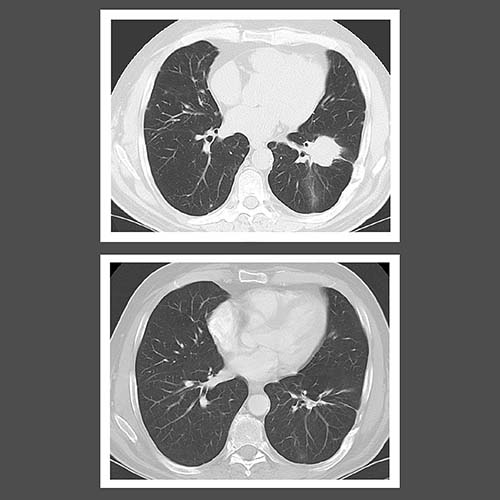IRP study finds that immunotherapy substantially increases survival of people with lymphomatoid granulomatosis
Results from a clinical trial conducted by researchers at the National Institutes of Health (NIH) show that people with low-grade lymphomatoid granulomatosis who are treated with interferon alfa-2b, a type of immunotherapy, can live for decades after diagnosis. Lymphomatoid granulomatosis is a rare precancerous condition triggered by Epstein-Barr virus infection. Left untreated, the disease can progress to a high-grade form, which has a poorer prognosis and can quickly turn into an aggressive and fatal B-cell lymphoma.
In the phase 2 trial, led by researchers in the Center for Cancer Research at the National Cancer Institute (NCI), part of NIH, patients treated with interferon alfa-2b lived for a median of about 20 years. By contrast, past studies reported a median survival of less than two years for people with lymphomatoid granulomatosis.
The findings suggest that immunotherapy can prevent the progression of low-grade disease to high-grade disease. The results were published March 31, 2023, in Lancet Haematology.
“We have shown in this rare disorder that using a novel immunotherapy-based approach for low-grade disease is effective and improves survival compared with historical treatments such as chemotherapy and corticosteroids,” said Christopher J. Melani, M.D., of NCI’s Center for Cancer Research, who co-led the study. “I think the results of this study represent a significant contribution to determining the standard-of-care treatment for this rare disease.”

Treatment with interferon alfa-2b led to the disappearance of a large lesion (top image) in the lungs of a patient with lymphomatoid granulomatosis, as shown in this computed tomography chest scan.
This page was last updated on Tuesday, April 4, 2023